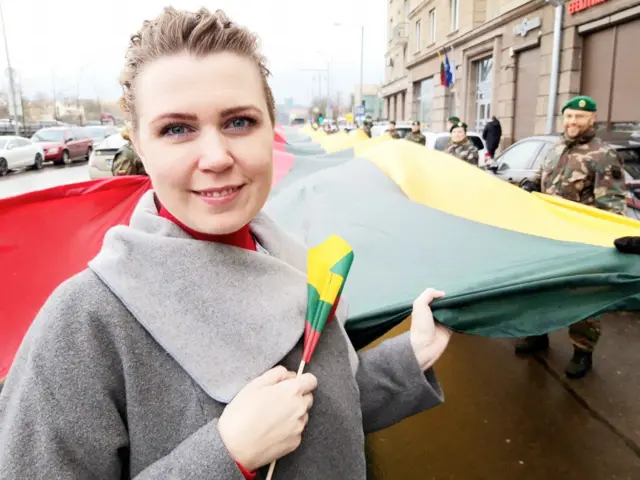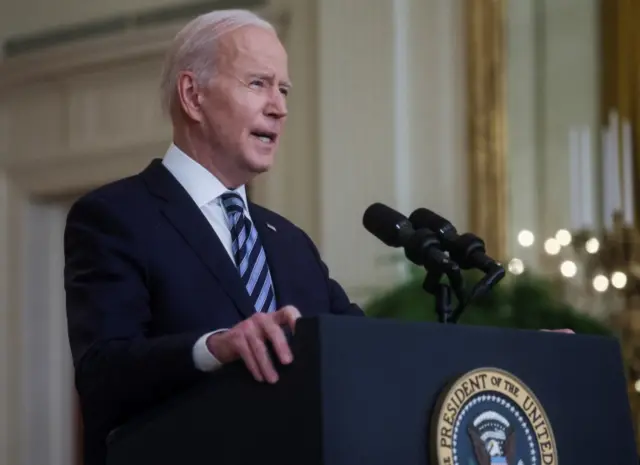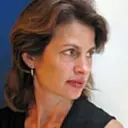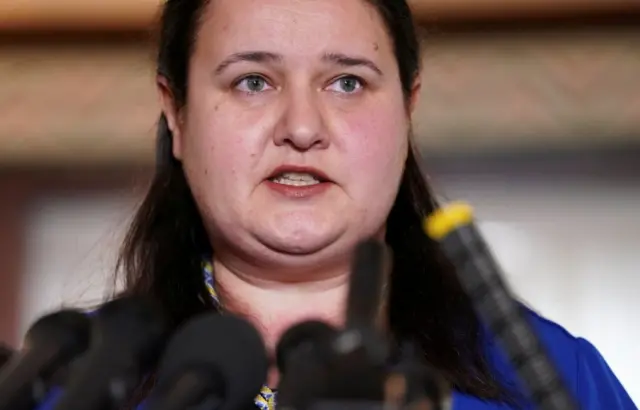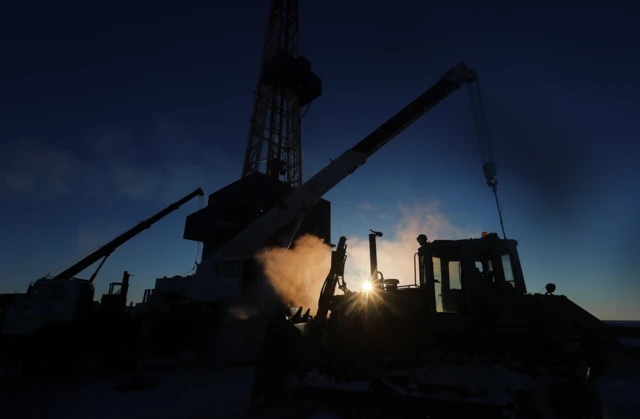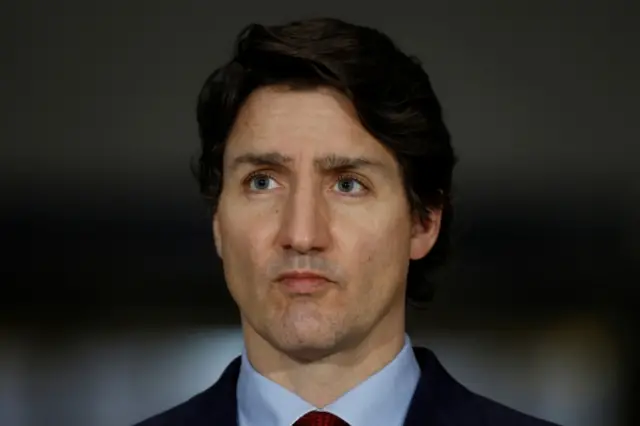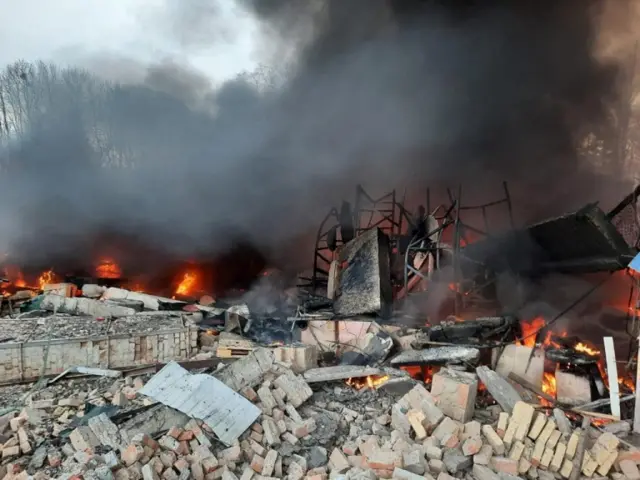Ukrainian disunity on display in eastern townpublished at 01:06 GMT 25 February 2022
By BBC's Oleg Karpyak, Kostiantynivka, eastern Ukraine
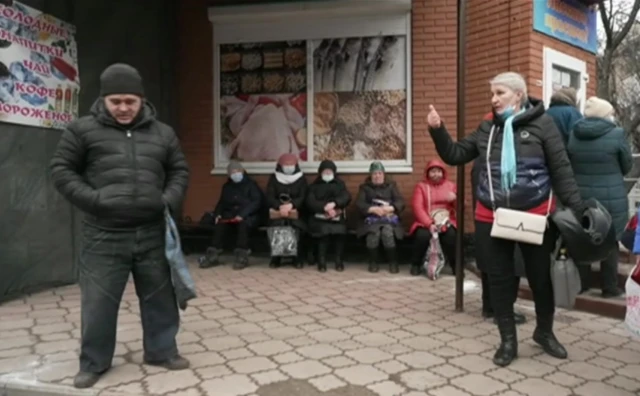
Some Ukrainians in the east of the country say they welcome what has happened
About 20km (12 miles) from the Donetsk breakaway republic, in eastern Ukraine, I got a glimpse of clashing views about Russia’s invasion as people did some early morning shopping on Thursday.
"Just bear in mind that the Donbas is pleased things turned out like this," one white-haired woman said, when I told her I was a journalist from the BBC.
"Because how much can they bomb Donetsk?" she went on. "Or don’t you realise that they are bombing?"
She was telling me that the Ukrainian military had been bombing Donetsk - a Ukrainian city that was seized by Russian-backed rebels in 2014 - and saying the people of the wider region, the Donbas, supported the latest Russian action.
In recent days there has been little or no evidence of Ukrainian attacks on Donetsk.
And the woman’s claim that the people welcomed the invasion was immediately challenged by a man who shouted that no-one was bombing Donetsk - and that Vladimir Putin was bombing Ukraine.
